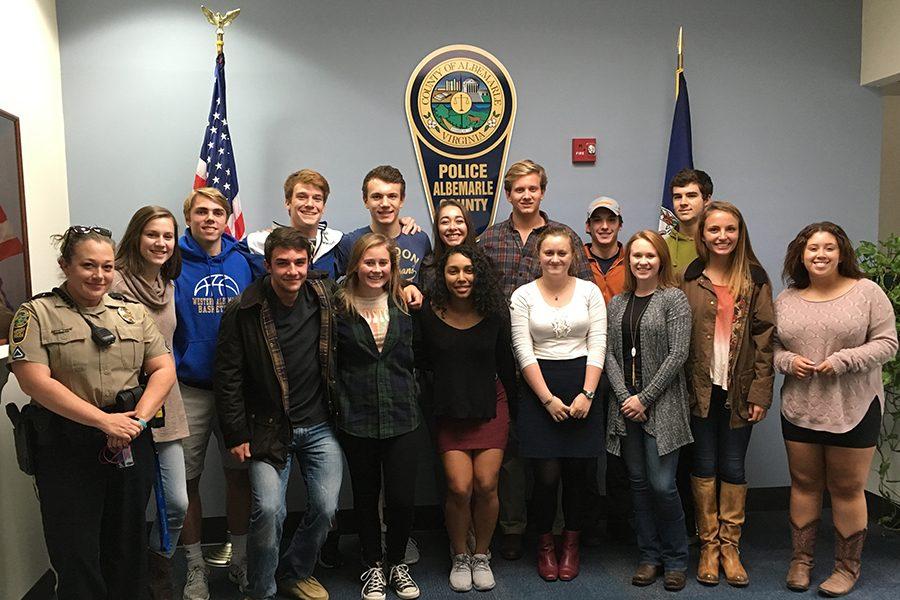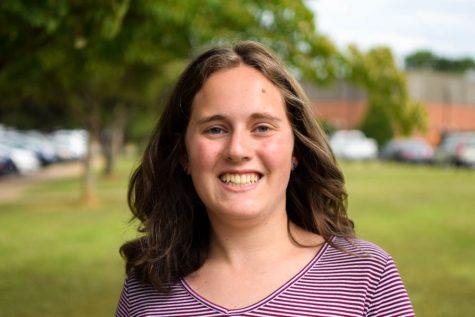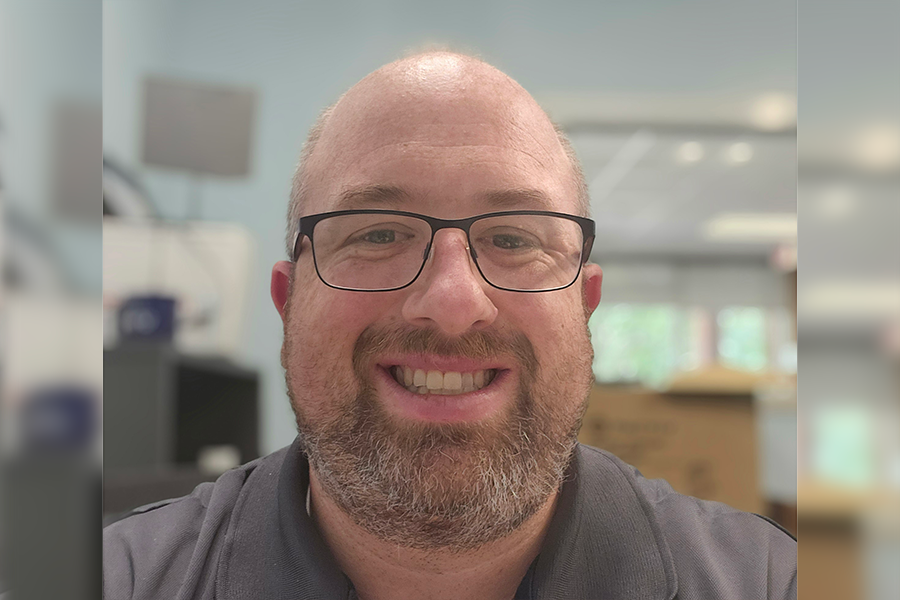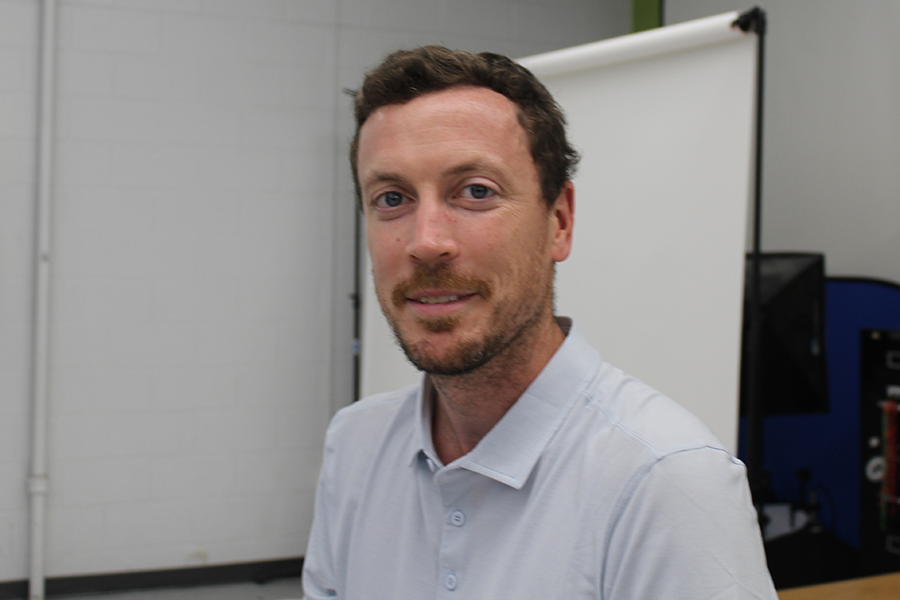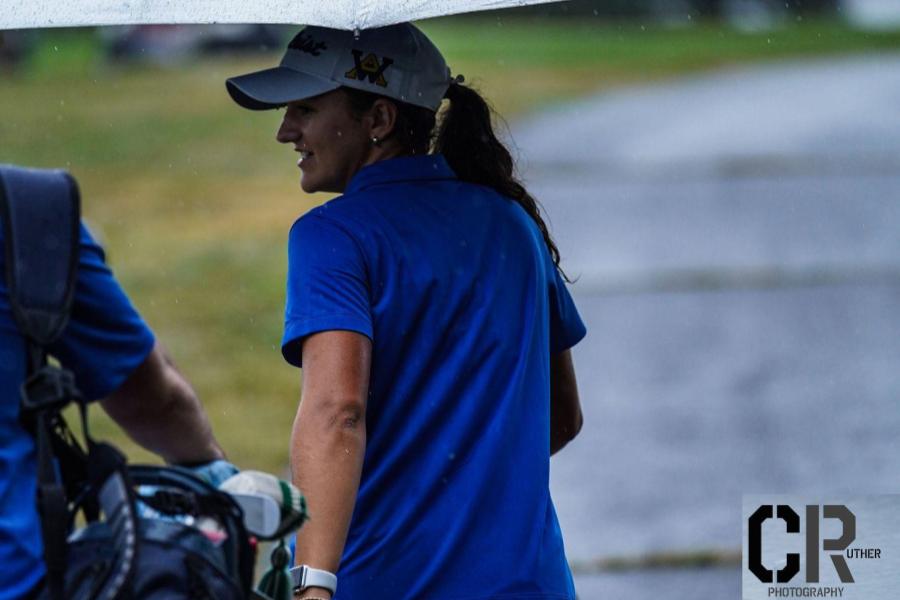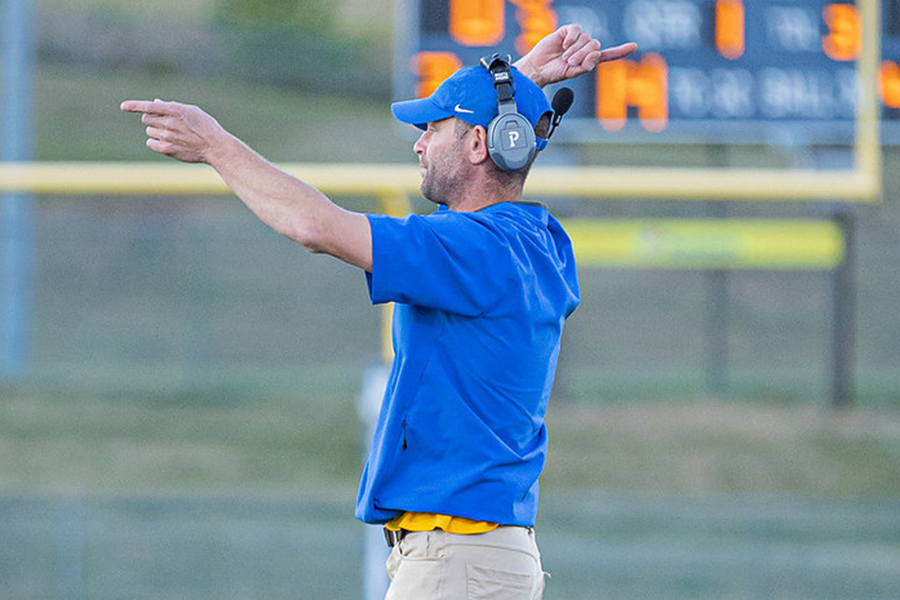Students Explore Future Careers With Practical Law
The Practical Law class learned about what police officers and detectives really do at their trip to the Albemarle County Police Department
January 4, 2017
The Practical Law class might sound like it could be dull, but it is quite the opposite. Recently the class has been going on many exciting field trips to learn about how the criminal justice system really works.
In October, Practical Law students took a tour of the Albemarle County Police Department. Students were able to see where police officers bring evidence and how they test and store it, as well as where detectives work. One class also met the Albemarle County police chief Ron Lantz.
“I think it’s really helpful for students to see where things happen, and the professionals who work in those places, how they handle things when someone is accused of having committed a crime, for instance,” said Ms. Lovaglio, who teaches the class.
Officer Proffitt, the school resource officer, helps Ms. Lovaglio organize some field trips for the class. She also came in to answer questions that students had. County detective Mark Below, who also happens to be Ms. Lovaglio’s cousin, did a Q&A as well.
Currently, Ms. Lovaglio and Officer Proffitt are trying to organize a field trip to take a tour of the Charlottesville-Albemarle Regional Jail. The class hopes to attend an Albemarle County and City of Charlottesville Circuit Court case.
Officer Proffitt has been involved in Practical Law since last year when she assisted the class in making presentations for the eighth graders at Henley. This year she has worked with Ms. Lovaglio on organizing field trips, such as going to the police station and prospective visits to the jail and court. She enjoys helping with the class, answering questions, and interacting with the students.
“It was kind of nice to be able to differentiate between real life and what you see on TV.” -Lili Mahara
Going to the police department and watching trials can show students what the criminal justice system is actually like. Ms. Lovaglio said that “it makes it very real to students.” She believes that “a lot of my students watch a lot of movies and TV shows that discuss the criminal justice system, and sometimes that’s not necessarily the most accurate portrayal of what the process actually is.”
Officer Proffitt agreed that the law system is different from what students might expect and is “not how it plays out on television.”
“It was kind of nice to be able to differentiate between real life and what you see on TV, and we do a lot of that in class,” said senior Lili Mahara, one of the students in Practical Law.
Ms. Lovaglio said that field trips are also helpful because they are “just a good way for students to have a positive interaction with a law enforcement official.”
She added that these interactions can teach students that “most of the police officers and other officials in our area are doing a great job, are held to very high standards, and the most important thing that they’re doing is they’re trying to help people.”
Ms. Lovaglio explained that “our focus right now is criminal law, but there’s a lot under that umbrella, so we’re sort of working our way through.” During the unit, students learned about different types of offenses, what’s considered an offense and what isn’t, and what someone can go to jail for.
Mahara said, “I really like the different things we learn about. We do current events every week and it’s kind of interesting to know what’s going on in the world, like the legal world.”
“Like different laws that I didn’t really even know existed. Did you know that it’s illegal to tickle a woman in Virginia?” she asked, laughing.
“Right now we’re doing the insanity defense,” Mahara explained, “and we’re watching this documentary about people who were ruled not guilty by reason of insanity. And that’s actually been really interesting.”
Mahara described that they also learned about the Loving case, a landmark Virginia decision in the 1960s that legalized interracial marriage. “And there’s a movie coming out, so we’re hoping to go see it. I’m really excited for that.”



